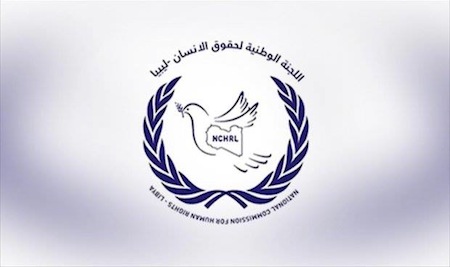By Jamal Adel.

Kufra, 28 October 2014:
The National Commission for Human Rights (NCHRL) has called on the House of Representatives to repeal the . . .[restrict]Political Isolation Law (PIL) passed by an overwhelming majority of the General National Congress (GNC) in May 2013. The law prevents any Libyan who held a leading position under the Qaddafi regime from being elected or holding state post for ten years.
In a statement released by the NCHRL this week, the organisation criticised the former GNC for having succumbed to pressure from militias and passing the law. It had immediately placed Libya at a disadvantage in its quest to achieve a national consistency and political consensus in the country.
The law , the NCHRL said, denied “certain” Libyans the right to a fair investigation and imposed a judgment upon them before they had the chance to speak for themselves.
“Not only is the law a thorough violation of human rights, it is in direct contradiction to the temporary constitutional draft,” said the statement.
“The law is selective and vengeful, and is contrary to the concepts of democracy and the rights of the citizen,” the NCHRL concluded.
The very controversial law has been challenged by a number of groups and individuals over the past three years — both national and international. In June 2013, former UN Special Envoy to Libya Tarek Mitri criticised the law as unjust.
“Written advice was provided to the GNC on international standards, best practices and potential risks of exclusionary measures. The current law falls short of these standards in a number of areas. We believe many of the criteria for exclusion are arbitrary, far-reaching, at times vague, and are likely to violate the civil and political rights of large numbers of individuals,” he said.
In defense of the legislation, former Prime Minister Ali Zeidan said one year after the law was passed that the PIL was a “necessary step” in “protecting the revolution”. He stressed that it was a temporary measure, however, until the nation and revolution stabilised.
For its part, the Libyan National Council for Human Rights and Civil Liberties announced last December that it was launching an appeal against the law on the basis that parts of it infringed the rights of many Libyans and contravened the August 2011 Constitutional Declaration. As of June of this year, the Supreme Court had not yet released a verdict.
A number of those who had worked to topple the Qaddafi regime for years such as former Congress President Mohamed Magarief, or had taken a prominent part in the revolution or even led it, such as former NTC leader Mustafa Abdul-Jalil, were disbarred from office because earlier in their careers they had worked with the regime.
[/restrict]







